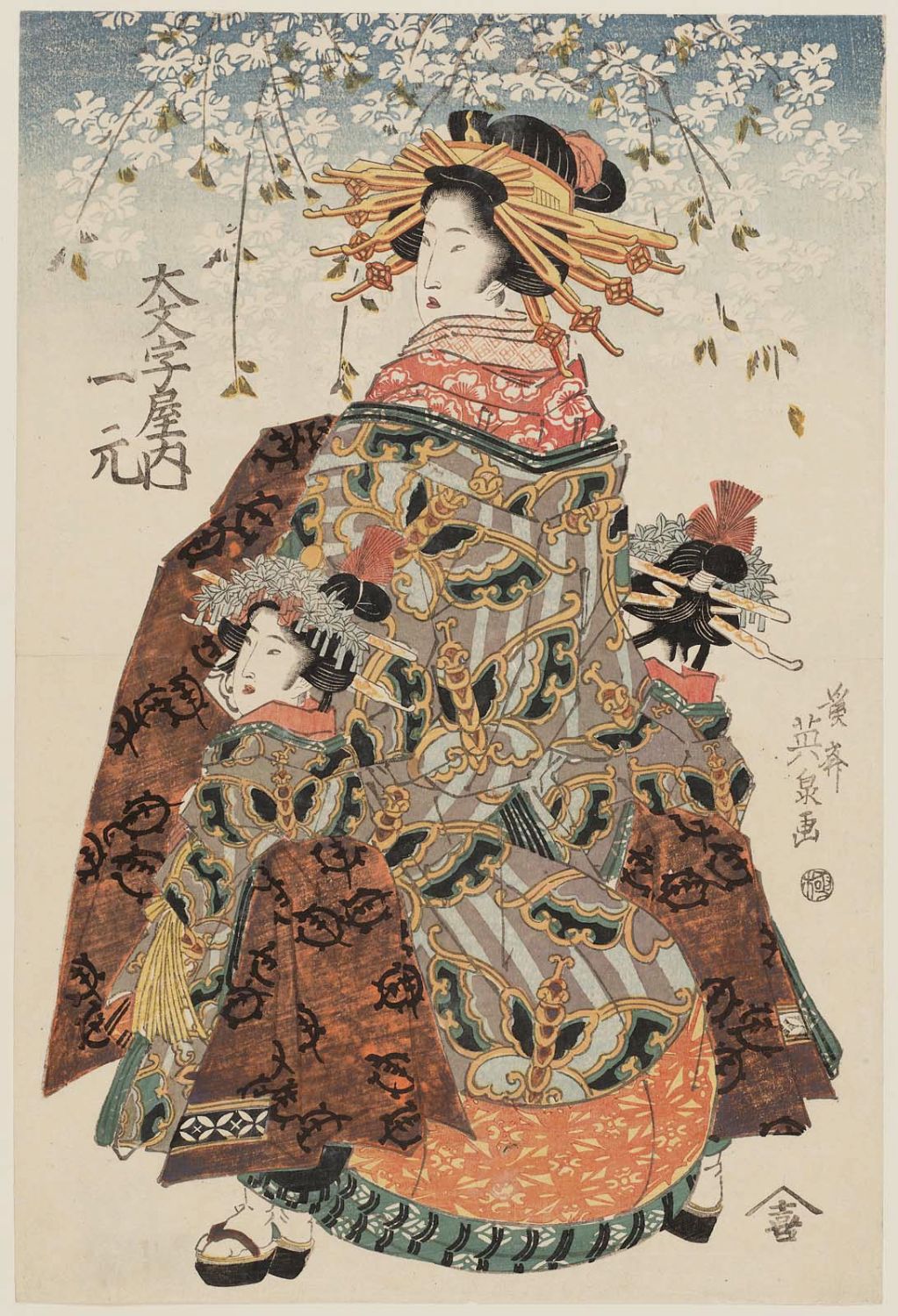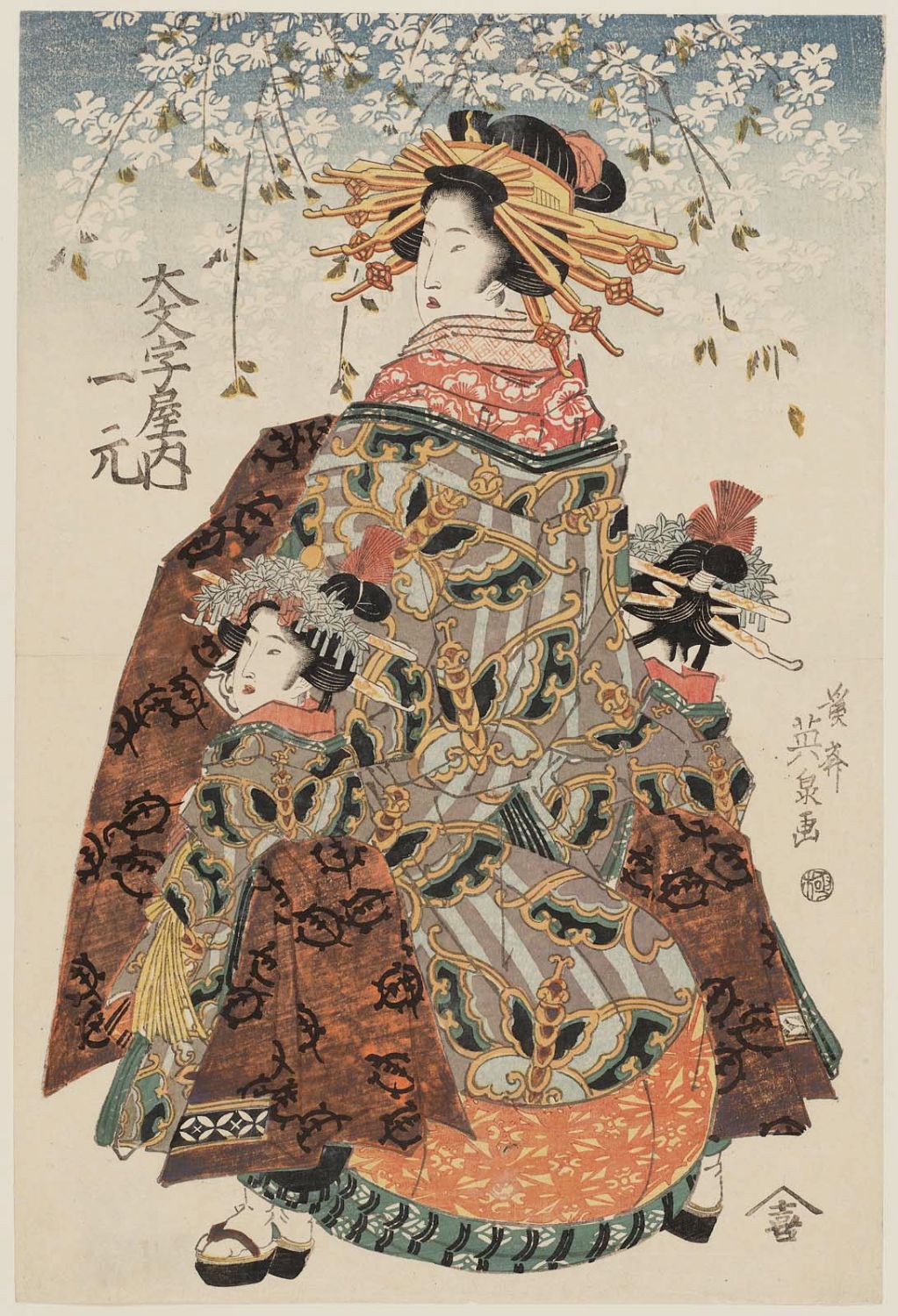Yesterday we presented a beautiful van Gogh painting which was a copy of a Japanese print created by Keisai Eisen. Unfortunately, I couldn't find the exact print in a proper resolution so I decided to present another "bijinga" (pictures of beautiful women). Eisen's best works, particularly his okubi-e ("large-head pictures"), are now considered masterpieces of the Bunsei Period (1818-1830). These portraits of beauties and courtesans are much admired for their pronounced elements of realism and sensuality. Throughout this period, he also produced large numbers of full-length portraits, many depicted women in the Yoshiwara red light district of Tokyo. In addition to producing a prolific number of prints, Eisen was a writer, producing biographies of the 47 Ronin. In addition, he wrote several books, including a continuation of the Ukiyo-e Ruiko (History of Prints of the Floating World), a book which documented the lives of the ukiyo-e artists. His supplement is known as "Notes of a Nameless Old Man," in which he described himself as a dissolute hard-drinker and claimed to have owned a brothel in Nezu in the 1830s which subsequently burnt down. The print on the top-right depicts the courtesan Hitomoto of the famous Daimonjiya brothel. Hitomoto had been often depicted by Eisen and other Japanese masters, like Utamaro I.




Hitomoto of the Daimonjiya
Woodblock print (nishiki-e) • 37.4 x 25 cm
 Keisai Eisen
Keisai Eisen